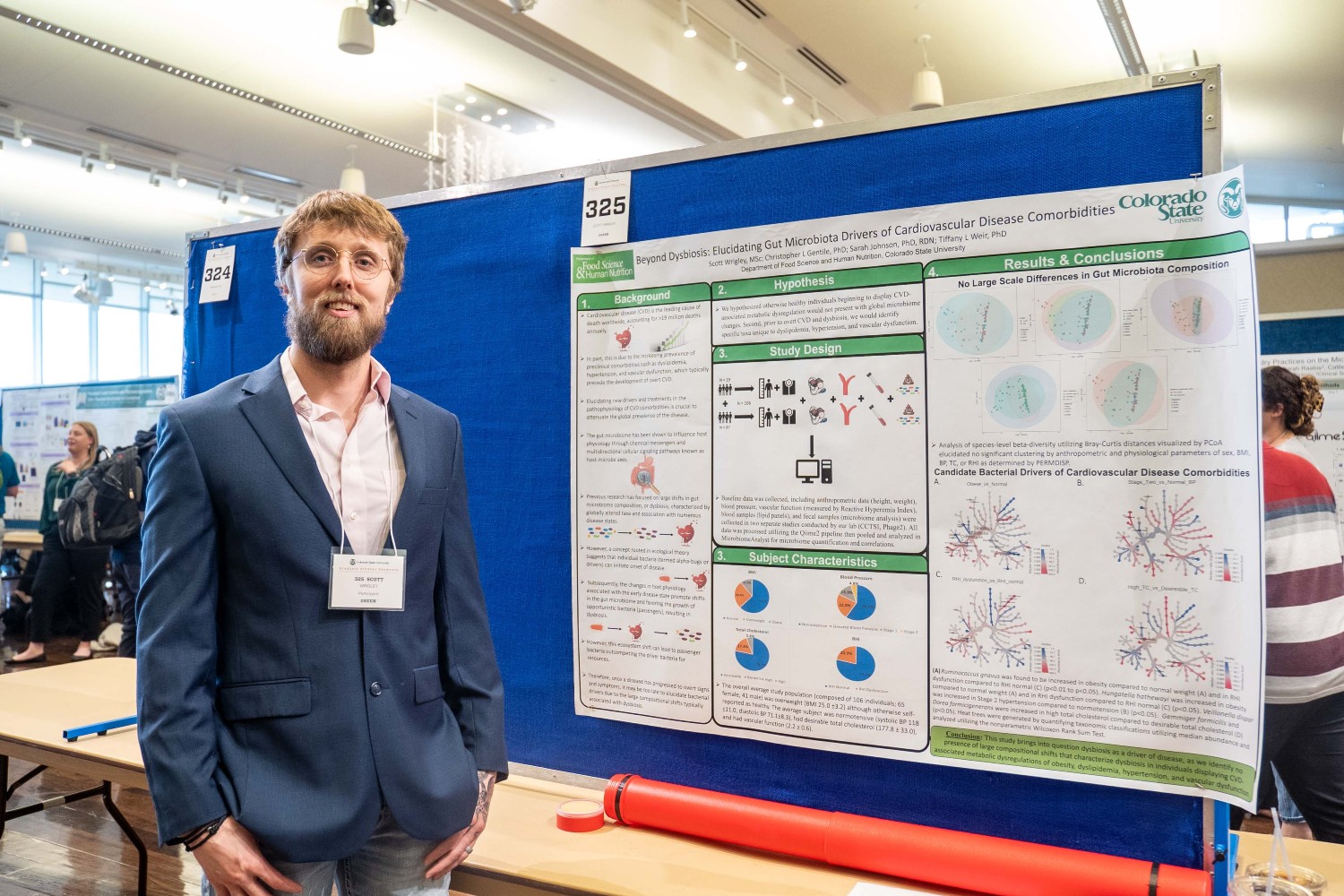
Scott Wrigley, a Ph.D. student in the Colorado State University Department of Food Science and Human Nutrition, was recognized with the Excellence in Research and Scholarship award at CSU’s 2023 Graduate Student Showcase on Nov. 15, one of five awarded by the College of Health and Human Sciences. Wrigley conducts research in the Intestinal Health Lab and the Integrative Cardiovascular Physiology Lab and is co-mentored by Professor Tiffany Weir and Professor and Department Head Chris Gentile. Read on for more info about Wrigley’s research.
What inspired you to conduct this research?
I have two main inspirations for my research: a family history of cardiovascular disease (CVD) and my fascination with the budding state of microbiome research. CVD, the leading cause of death worldwide, is a general term that encompasses diseases of the heart and blood vessels. CVD runs in my family, with numerous family members impacted by various forms of the disease, such as atherosclerosis (plaque buildup), myocardial infarction (heart attacks), and hypertension (high blood pressure). As such, it is a passion project to work in CVD research.
Gut microbiome research examines the microbes that live in our gut, their genetic material, and the metabolites they produce. Research has implicated the gut microbiome as a driver of host health and function through host-microbe axes. For example, work from our lab has shown that suppression of the gut microbiome through antibiotic administration reversed western-diet-induced blood vessel dysfunction. However, the gut microbiome field is still in its infancy, and though links have been established between the microbiome and host health and function, we still have much to discover. When I think about the emerging nature of the gut microbiome field, the potential to make a lasting impact with my research is exciting and feels like a real possibility.
Tell us about your research and what impact you hope it will have.
Currently, I am working to identify specific species of bacteria associated with vascular dysfunctions (i.e. blood vessel stiffening and cellular dysfunction) and metabolic disturbances such as obesity, high blood lipids, and high blood glucose, which typically precede overt CVD. In the long term, I hope that this avenue of investigation will allow me to identify novel methods for the prevention and treatment of CVD.
What does receiving this award mean to you?
To me, receiving this award means multiple things. First, the ability to communicate our science effectively is always at the forefront of my mind. My mentors, Dr. Weir and Dr. Gentile, place an emphasis on science communication in our labs, whether through leading discussions in our journal club or presenting our data during lab meetings. As a result, I constantly try to think of different ways to explain concepts and present ideas so that they are digestible to individuals from a diverse array of backgrounds. As research presentations are judged both on visual and oral presentation, it validates the thought and work we put into communicating our projects.
Second, another part of the judging criteria is the impact of the research being evaluated. Receiving this award further validates my belief that our research is impactful. Finally, this award is motivating and inspiring. At times, graduate school can be difficult, and research can be frustrating. From my experience, researchers can spend a lot of time questioning whether their avenue of investigation is fruitful. Receiving this award makes me feel like my research can be impactful and motivates/inspires me to keep driving in those tough times.
The Department of Food Science and Human Nutrition is part of CSU’s College of Health and Human Sciences.